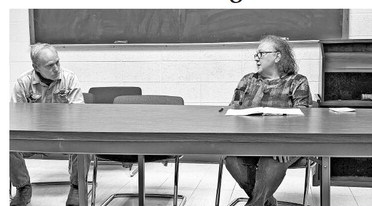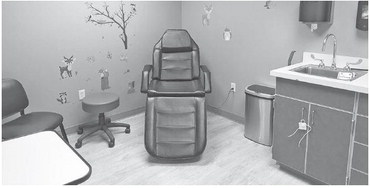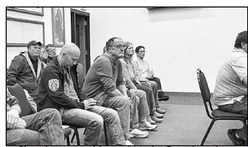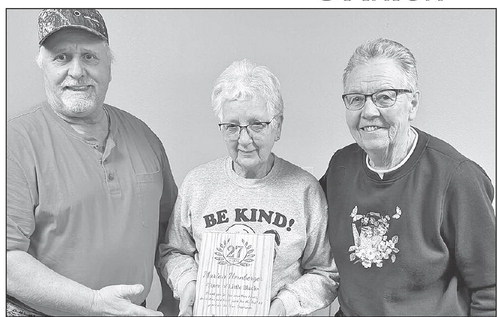Program helps offenders see damages caused by their choices


“We’re hoping they never come back.”
Not many people would say this of their patrons, but Monelle Johnson, Executive Director of Restorative Justice Programs of Taylor County, hopes never to see her consumers again.
Considering that someone is injured or killed in an impaired driving crash every two hours in Wisconsin, her statement is more than fair.
According to the Wisconsin Department of Health Services, 17.1% of adults in Taylor County are estimated to have participated in binge drinking in the past month with binge drinking defined as the consumption of an excessive amount of alcohol in a short period of time.
Restorative Justice is an approach to justice that focuses on the needs of the victims and offenders, as well as the community involved.
One of the programs offered by the group are victim impact panels. This is a program designed to help repair the harm caused by drunk driving. The course focuses on rehabilitation rather than punishment. There are three ways that one may find themselves enrolled in a Restorative Justice victim impact panel. The most common way is through the circuit court, where offenders who have had two or more OWI’s are mandated to attend. Others may come from Human Services where they’ve been asked to participate as part of treatment. Individuals from both avenues pay a $40 fee. A few come voluntarily as Restorative Justice is open to the public. Those who attend voluntarily are not required to pay a fee.
Restorative Justice hosts a victim impact panel four times each year. That panel can be comprised of offenders, victims, or both. On Thursday, April 3, Johnson and Restorative Justice held a victim impact panel for a group of people who have been required to attend. Johnson stated that one individual in the audience was there voluntarily.
Impact panels are designed to evoke an emotional response from offenders with speakers relaying how they have been directly affected by drunk drivers. It’s an opportunity for violators to hear a firsthand account and experience empathy, compassion, and have time for reflection.
Sherry A. Anderson spoke as part of the victim impact panel. Anderson is the survivor of a drunk driving collision which left her seriously injured many years ago. She felt the fallout of the incident for decades afterwards,. She and her family have had to deal with the mental, emotional, physical and financial consequences of a decision that was not her own. The driver involved in the wreck was killed. To this day, Anderson cannot drive by the scene of the collision without being affected.
“If I can say something that will help one of you, it’s worth it,” Anderson said to the crowd.
Tony Olah also spoke as part of the victim impact panel. Olah identified himself as an alcoholic. Olah lost his brother, Jim, in a drunk driving incident where all parties involved were under the influence of alcohol. Their sister, June, was in the car involved in the collision with Jim. Olah and his siblings continue to feel the affects of it.
Olah stated that he had been a program attendant, but on the other side of the table. He’s experienced Restorative Justice as someone who was mandated to attend by the court system more than once. Olah stated that he didn’t take it seriously at first. But he kept coming, and eventually, Johnson called him to share his story. Though it isn’t easy Olah attends to speak each time she calls.
“If you’ve got a problem, get it fixed,” Olah urged of participants.
Johnson does not measure the success of Restorative Justice Victim Impact Panels in numbers, stating that if one person has been discouraged from drinking and driving, the program has done its job. She asks each participant to fill out a survey and evaluate the session, using the input to better the program. Johnson also calls each person who was present at a panel one year after they’ve attended to check on them and get feedback. Johnson says that not everyone picks up the phone, but the three people she spoke to this month all reported that they have stopped drinking and driving completely in the year since they attended.
She’s also seen people who have once violated come back to speak on the panel themselves, like Olah.
“We’ve had a handful,” Johnson said. “It’s eye-opening.”
Restorative Justice is a non-profit organization with Johnson as the only employee, and part-time at that. Anyone else helping with the program is a volunteer, including the board of directors. Most of their funding comes from grants and donations through United Way, as well as the fees paid by mandated offenders.
Johnson states that there are other opportunities for growth within the program, such as victim/offender conferencing. This takes place when a victim would like to confront the offender and ask questions or hold an open conversation. This is done at a neutral place, with an experienced mediator present. Restorative Justice also hosts a juvenile offender program. Both of these services are confidential due to their sensitive nature.
You may have seen Johnson with her volunteers at parades and demonstrations with their crash vehicle. She states that the car can be illuminating to anyone who has not seen the effects of drunk driving in person as the vehicle itself was involved in an incident that claimed the lives of three people. Johnson and her team of volunteers use the car as a tool to persuade people not to get behind the wheel after drinking.
Johnson urges people to consider getting involved in the program, whether that means speaking at or attending a victim impact panel, or serving on the board. The board of directors meets six times per year with the only requirements being that members must be adults residing in Taylor County. The organization can also accept donations.
The next Restorative Justice panels take place on July 10 and October 2 at 5:30 p.m. at the USDA Service Center located at 925 Donald St. in Medford. Johnson can be reached at (715) 748-1482.




